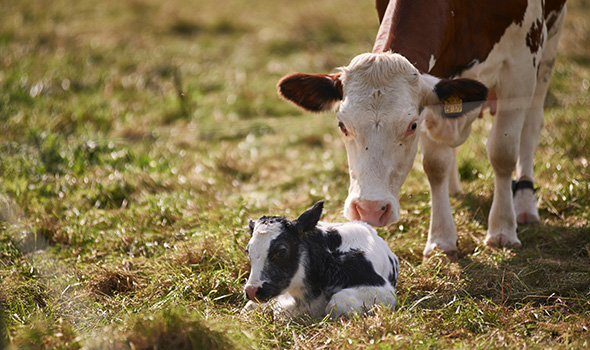
Ruminants
Things to keep in mind while preparing for the Calving Season
Calving is a natural process that does not require any assistance. However, it
is extremely important to keep yourself and your animals thoroughly prepared
for the calving season as there are number of things that one must take into
account such as the feed intake and higher nutrient demand. Be it winter
calving season or spring, staying prepared can help ensure a smooth process,
for the bovine as well the farmer. Here are some things you can do to stay
prepared for the calving season:
-
Keep a calving kit handy
It is always a wise option to keep certain tools and equipment handy in
case you need to assist your animal for a successful delivery. The
situation might get out of hand when the calving is underway and you have
to run around to get supplies to aid the process. Make time prior to the
due delivery date and make a checklist of the supplies you should keep in
hand, such as Disposable Obstetric Gloves, Obstetric Lubricant, Obstetric
Chains, Paper Towels, Disinfectant Solutions, Feed, Tags, Tag Markers and
more.
-
Understanding the Nutritional Needs of Cows:
The nutritional needs of the cow before and after calving plays a key role
in the process. Meeting the nutritional requirements before calving is
essential for the growth of the fetus and the production of colostrum (a
milky fluid released by mammals right after giving birth). Cows that are
overfed tend to struggle with dystocia (prolonged labour) due to fat
accumulation in the pelvis
-
Review your Herd Health Plan:
If there has been a constant case of health issues within the herd, it is
necessary to talk to your veterinarian to review the herd health and look
out for signs of illness in the pregnant cow. You can also talk to your
vet about how you can work towards reducing the risk of illness during
this critical period.
-
Preparing for the weather conditions:
During the winter calving season, it is essential to ensure that there are
sheltered areas for protection against strong winds. Keep a load of straws
and shaving to use as bedding and ensure that the pen is dry. Calves that
are born in wet and cold conditions can die of hypothermia if proper care
is not given. In contrast, if the calving is taking place during the
spring season, ensure that there is ample shade available to protect both
the cow and the calf from excess heat.
-
Stock feed supplements:
Before calving, talk to your veterinarian about health protocols and a
feeding schedule. Keep supplements for both the cow and calf in handy. For
the cow, it is important to have feed supplements with the right
ingredients to make sure that the cow doesn’t go off feed. Feed
supplements can also be given for the timely start of lactation. Keeping a
supply of colostrum for the calf can be of great help as it contains a
high level of nutrients that support the immunity system. Kamdhenu
formulated by Natural Remedies is an ideal feed supplement keep
post-calving problems at bay.
Though the calving season can be a stressful period for both the animal and
the caretaker, it is easier to get through when you plan ahead. Both the cow
and the calf will need your assistance to recover, so plan beforehand and keep
the essentials ready for a smooth calving experience!

















Add your comment